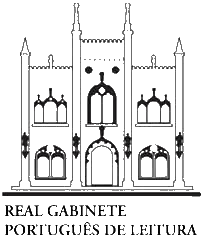Mattos, Malta or Matta?, Aluísio Azevedo’s first detective fiction
DOI:
https://doi.org/10.37508/rcl.2022.n47a482Keywords:
novel-feuilleton, detective novel, newspaperAbstract
At the end of the 19th century, a time of effervescence in urban novels, a crime of difficult solution, which occurred in the city of Rio de Janeiro, inspired the publication of the novel-feuilleton Mattos, Malta ou Matta? – without authorship – by the magazine A Semana. The mystery transposed the narrative and came to reality: for a long time, the author of the serial remained unknown. As for the crime, it was not revealed, but, some time later, the authorship of the novel was attributed to the already distinguished writer Aluísio Azevedo. Contemporary with the literature of the so-called enigma school, by Edgar Alan Poe and Arthur Conan Doyle, Aluísio opens, in Brazil, with this novel, a genre already on the rise in Europe, but, until then, unheard of in the country: the detective novel. Despite some similarities with his foreign contemporaries, the Brazilian author’s mystery narrative remains its peculiarities, transgressing the genre and surprising the reader’s expectations, becoming a landmark in the Brazilian literature.
Downloads
References
ARARIPE JUNIOR, Tristão de Alencar. Obra crítica de Araripe Junior. Volume II (1888- 1894). Rio de Janeiro: Ministério da Educação e Cultura, Casa de Rui Barbosa, 1960.
AZEVEDO, Aluísio. Mattos, Malta ou Matta? Rio de Janeiro: Nova Fronteira, 1985.
BAKHTIN, Mikhail. “Epos e romance”. In: Questões de Literatura e de estética. São Paulo: Hucitec/ Unesp, 1988.
BORGES, Jorge Luís. Borges oral. Trad. Rafael Gomes Filipe. Lisboa: Vega, s/d.
BOSI, Alfredo. Araripe Júnior: Teoria, crítica e história literária. Rio de Janeiro: Livros Técnicos e Científicos; São Paulo: Edusp, 1978.
BOSI, Alfredo. História concisa da literatura brasileira. 3.ed. São Paulo: Cultrix, 1984.
CHIARA, Ana Cristina de Rezende. “Uma leitura delicada... ou o cadáver fede – a propósito da leitura de Mattos, Malta ou Matta?, romance-folhetim de Aluísio Azevedo”, in. Cadernos do Congresso Nacional de Linguística e Filologia, Série VII, no. 09. Rio de Janeiro, 2003. Disponível em: . Acesso em: 25 maio 2011.
ECO, Umberto. Pós-escrito a O nome da rosa. Rio de Janeiro: Nova Fronteira, 1985.
FANINI, Angela Maria Rubel. “Os romances-folhetins de Aluísio Azevedo: aventuras periféricas”. Tecnologia e Humanismo, Curitiba. V. 01, n. 27, 2004. Disponível em: <https://core.ac.uk/download/pdf/30366971.pdf>. Acesso em: 20 dez. 2021.
PIGLIA, Ricardo. O laboratório do escritor. Trad. Josely Vianna Baptista. São Paulo: Iluminuras, 1994.
POE, Edgar Allan. Ficção completa, poesia & ensaios [em um volume] / organizados, traduzidos e anotados por Oscar Mendes com a colaboração de Milton Amado; precedida de estudos biográficos e críticos por Hervey Allen, Charles Baudelaire e Oscar Mendes de uma breve cronologia e de uma bibliografia; ilustrações de Eugênio Hirsch e Augusto Iriarte Gironaz. Rio de Janeiro: Nova Aguilar, 1986.
REIMÃO, Sandra Lúcia. O que é romance policial. São Paulo: Brasiliense, 1983.
TODOROV, Tzvetan. As estruturas narrativas. Trad. Leyla Perrone- Moisés. São Paulo: Perspectiva, 1979.
VERÍSSIMO, José. História da Literatura Brasileira – De Bento Teixeira a Machado de Assis, 1963.
WATT, Ian. A Ascensão do Romance. Trad. Hildegard Feist. São Paulo: Companhia das Letras, 1990.
Downloads
Published
How to Cite
Issue
Section
License
Authors who publish in Convergência Lusíada agree with the following terms:
- Authors retain copyright and grant the journal right of first publication with the work simultaneously licensed under a Creative Commons Attribution-NonCommercial 4.0 International License (CC-BY-NC 4.0) that allows others to share the work with an acknowledgment of the work's authorship and initial publication in this journal.
- Authors may enter into separate, additional contractual arrangements for the non-exclusive distribution of the journal’s published version of the work (e.g., post it to an institutional repository or publish it in a book), with an acknowledgment of its initial publication in this journal.
- Authors are permitted and encouraged to post their work online (e.g., in institutional repositories or on their website) prior to and during the submission process, as it can lead to productive exchanges, as well as earlier and greater citation of published work.

Revista Convergência Lusíada is licensed under a Creative Commons - Atribuição-NãoComercial 4.0 Internacional.









